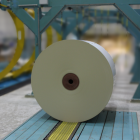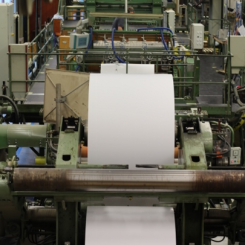The American paper producer Appvion recently announced that it is escalating its campaign to ensure that antidumping and countervailing duties on imports of lightweight thermal paper from China and antidumping duties on imports of lightweight thermal paper from Germany are being fully enforced.
In 2008, the U.S. Department of Commerce imposed duties on imports from these countries as a result of trade remedy cases filed by Appvion (then Appleton Papers). Recent information indicates that importers are attempting to evade the duties owed by misstating the country of origin of the product, through transshipment, or by other means.
"We expended significant time and resources to ensure a successful outcome in these cases. Now certain importers are trying to evade the duties. The actions of these importers may be illegal, and we are asking the U.S. government to investigate them fully and prosecute where warranted." said Mark Richards, Appvion's chief executive officer. "We have initiated steps to ensure that the duties on imports from China and Germany are enforced fully through an education campaign with customers, and by working closely with U.S. Customs and Border Protection to identify companies that are attempting to circumvent the duties."
Antidumping duties on imports of lightweight thermal paper produced by Papierfabrik August Koehler AG are 75.36 percent. Antidumping duties for all other German manufacturers are 6.5 percent. Antidumping duties on imports from China range from 20 to 115 percent, and countervailing duties range from 13 to 123 percent.
The duties cover imports of lightweight thermal paper products, typically used for point-of-sale retail receipts and coupons, sold into the United States by manufacturers and converters based in China and Germany.
Dumping occurs when a foreign producer sells goods in the United States at prices below those at which it sells in the country of origin or at prices lower than the cost of production. When a foreign government subsidizes goods by providing financial assistance to benefit the production or exportation of goods, such assistance may result in unfair trade practices. In 2008, the United States government found that dumping and subsidies existed, and that the domestic market was threatened with material injury, and imposed duties to offset the amount of dumping and subsidization.

























































